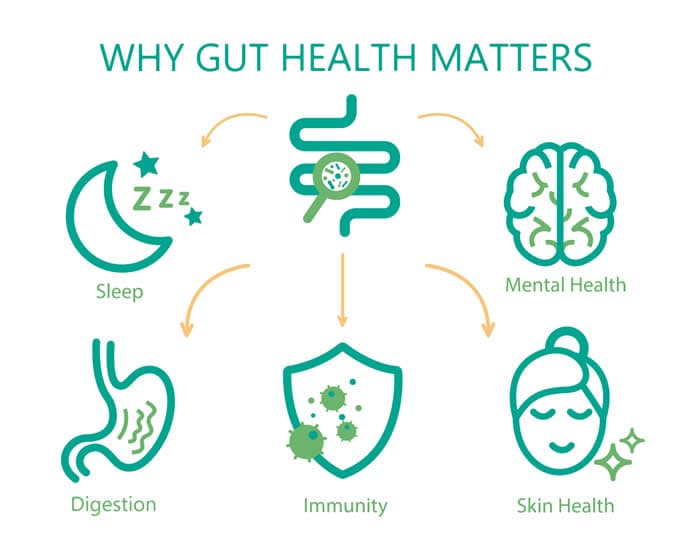Researchers have recently discovered a specific type of bacteria that appears to play a role in reducing heart disease risk. Discover the details!
The gut microbiome has been linked to health in a variety of ways, playing a role in the development of type 2 diabetes, fatty liver disease, cancer, and more. (1) Bacteria in the gut have also been implicated in heart health. Studies have identified numerous pathways in the “gut-heart connection.” (2)
The gut’s role in heart health is not new information. However, what is new, is researchers’ recent discovery of a specific type of bacteria that appears to play a role in reducing cardiovascular disease risk. It is bacteria contained within the Oscillibacter genus.
What Are Oscillibacter Bacteria?
There are several different types of bacteria within the Oscillibacter genus. Some include Ocscillibacter ruminantium and Oscillibacter valericigenes, among others. Scientists first became aware of the Oscillibacter genus in 2007. (3) However, since that time, we’ve learned much more about the bacteria in this genus and their impact on health.
Generally, these bacteria are known to negatively affect a person’s health versus helping it. For instance, some studies have connected a higher number of Oscillibacter bacteria in the intestinal microbes of children with asthma with decreased immune function. (4) A high amount of Oscillibacter bacteria has also been found in patients with mild to moderate chronic kidney disease. (5)
That’s partially what makes this new study so interesting. This same category of bacteria that has been implicated in several different chronic diseases now seems to have a positive effect on heart health.
This new research was published on April 2, 2024, in the journal Cell. It involved 1,429 participants in the Framingham Heart Study (FHS). (6) The FHS study is a multigenerational study that has been conducted since 1948. It was established to identify factors that contribute to cardiovascular disease risk. Today it aims to better understand heart disease patterns and trends, as well as outcomes. (7)
Researchers in this study involving FHS participants found that species from the Oscillibacter genus appear to metabolize cholesterol in the body, breaking it down. This can potentially help individuals reduce their cholesterol levels, which can subsequently reduce their heart disease risk.
Studies such as this highlight the value of understanding more about the gut microbiome and how different bacteria can impact health, potentially in different ways.

It can also help us better identify the actions we can take to promote our heart health, in part, by creating a healthier gut.
Improving Heart Health by Improving Gut Health
Harvard Medical School provides several actions you can take to begin to create a heart-healthy gut. They include: (8)
• Eating fiber-rich fruit, veggies, and grains, which may decrease the risk of heart disease and stroke by up to 30%
• Consuming foods high in probiotics, such as yogurt, sauerkraut, miso, and tempeh
• Following a plant-based diet, with the Mediterranean diet being a good option
• Limiting the consumption of red meat
Natural Wellness also offers a variety of supplements designed to help support heart health.
It is often said that you should always “trust your gut.” In this case, if you feed it the right diet, you may just be able to trust your gut to improve your heart health. Wouldn’t that be a great trust to have?




